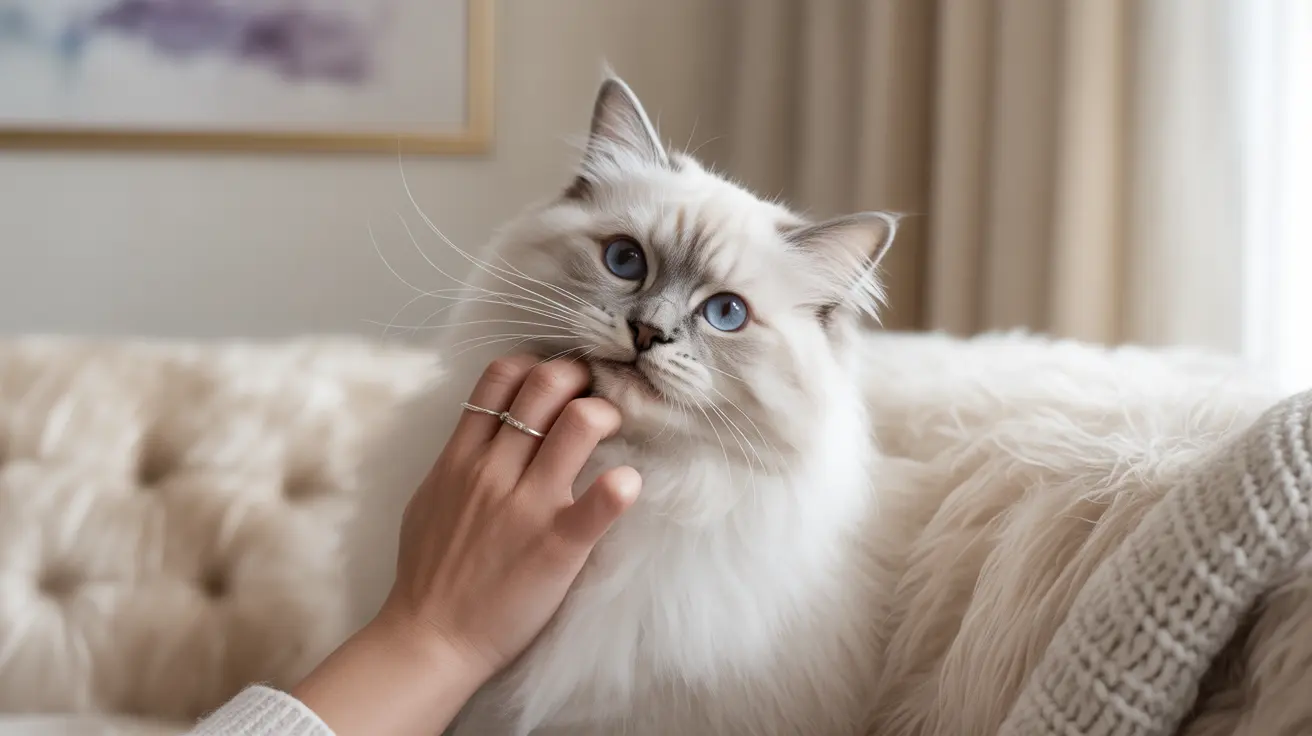The Science of Feline Facial Marking
Cats have specialized scent glands located throughout their faces – specifically in their cheeks, chin, forehead, and around their mouths. When your cat rubs their face on you, they're actually releasing pheromones from these glands, which serve as chemical messengers that other cats can detect.
These pheromones contain unique chemical signatures that help cats communicate various messages to other animals in their environment. The process is similar to leaving a calling card that says, "I was here" or "This belongs to me."
Social Bonding and Territory Marking
When your cat rubs their face on you, they're essentially claiming you as part of their territory. But don't be offended – this is actually a compliment! It means they consider you part of their social group and trust you enough to share their scent with you.
This behavior also helps create a communal scent profile in multi-cat households, which can reduce tension and promote harmony among feline family members. Each time your cat bunts against you, they're reinforcing their social bonds and maintaining their territorial claims.
Signs of Trust and Affection
Face rubbing is one of the most sincere forms of feline affection. When cats perform this behavior, they're putting themselves in a vulnerable position, demonstrating their trust in you. It's often accompanied by other signs of contentment, such as purring or a raised tail with a slight curve at the tip.
This gesture is particularly meaningful because cats typically only engage in face rubbing with individuals they feel safe and comfortable around. If your cat regularly rubs their face on you, it's a clear sign that they've accepted you as a trusted companion.
Health and Behavioral Considerations
While face rubbing is generally a positive behavior, changes in its frequency or intensity might warrant attention. Excessive rubbing could indicate anxiety, skin irritation, or other health issues. It's important to distinguish between normal bunting and problematic head pressing, which involves forcefully pressing the head against surfaces and requires immediate veterinary care.
Frequently Asked Questions
Why does my cat rub its face on me and what does it mean?
When cats rub their face on you, they're marking you with their scent through special facial glands. This behavior indicates trust, affection, and a desire to claim you as part of their territory. It's a positive social behavior that helps strengthen the bond between you and your cat.
How do cats use face rubbing to mark their territory?
Cats release pheromones from facial glands when they rub against objects or people. These chemical markers serve as territorial claims and help create familiar scent signatures in their environment. Regular rubbing helps maintain these scent markers as they naturally fade over time.
Can cat face rubbing be a sign of affection or trust?
Yes, face rubbing is definitely a sign of affection and trust. Cats only engage in this behavior with individuals or objects they feel comfortable around. It's one of the ways cats show their attachment to their human family members.
Should I pet my cat when it rubs its face on me?
Generally, yes! When your cat initiates contact through face rubbing, it's usually receptive to attention. However, watch their body language – if they seem tense or walk away after rubbing, they might just be marking territory rather than seeking interaction.
When should I be concerned about my cat rubbing its face excessively?
Be concerned if face rubbing becomes obsessive, is accompanied by skin irritation, or if your cat shows signs of distress. Also, watch for head pressing (forceful, prolonged pressing against surfaces), which is different from rubbing and requires immediate veterinary attention.
Conclusion
Face rubbing is a natural, healthy behavior that helps cats communicate, establish territory, and show affection. By understanding this behavior, you can better appreciate your cat's attempts to bond with you and maintain a harmonious relationship with your feline companion. Remember to respect this gesture as the compliment it is – you've been chosen as part of your cat's trusted inner circle!






